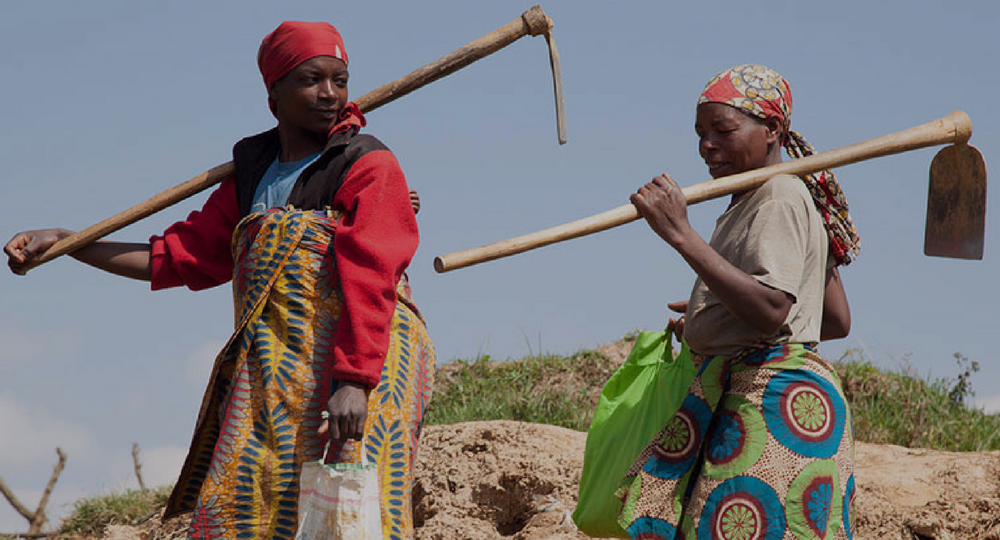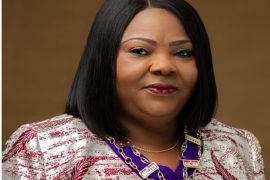The Challenges Faced by African Women Farmers
Nwankwo Miracle Ngozi
Africa’s agricultural sector is experiencing a drastic change following the influx of women in the sector. Women across the continent are contributing immensely to influence crucial roles in shaping the growth of African agriculture.
There is no doubt that women in Africa are key contributors to economic growth and global food security. Despite the limited access to land, inputs, assets, markets, information, and knowledge, time, decision-making, authority and income, African women are still making waves in the agribusiness. The likes of Mme Elisabeth Atangana; a farmer by profession, has been making strides in Africa’s agricultural sector. She has been referred to as the voice of women farmers, she is also the first President of the Platform of the Pan-African Farmers Organization (PAFO) and was appointed as Special Ambassador for Cooperatives by FAO on 29 May 2012.
Women’s input in the agricultural situation of Africa especially when it comes to food production, food provision, and food exportation cannot be over emphasized. Statistics show that 60 to 80% of foods are produced by women in many developing countries, also they produce half of the total food production in the world, and they also undertake 60 to 90% of the rural marketing.
Women constitute 70% of the work force in the agricultural sector in Africa and 10% of the basic food processing. They also carry out 60 to 90% of the total rural marketing. According to a report put together by the Food and Agricultural Organization (FAO), women make up more than two-third of the workforce in agricultural production.
However, they are faced with diverse challenges that have been an obstacle to their progress in the agribusiness. Women farmers in different countries have little or no access to basic amenities for agricultural production in Africa.
In Nigeria for instance, women farmers are faced with limitations of formal and traditional rules. For those ones who are not restricted by traditional rules, they are bound by formal rules which are as a result of ignorance and lack of educational empowerment.
Yet, Nigerian women constitute a large amount of the total population of farmers in the country. According to the Federal Ministry of Agriculture & Rural Development, women account for 75 percent of the farming population in Nigeria, ranging from farm managers to suppliers of labour. They engage in weeding, harvesting, processing, and selling of farm produce but are rarely involved in the exportation processes. While in most areas, women engage in small scale animal production including small ruminants, poultry, and aquaculture.
The case of Nigerian agricultural women is the same in most African countries. The women are rarely supported by the government. For those who are unlearned, they do not have access to technology and are not informed about its usefulness to the agricultural sector.
The challenge of land
The access to land by African women is very poor, women often face difficulties in recruiting workers and obtaining credit for improved production since they are not the rightful owners of the land. Women are ready to do more than they are already doing if they can be granted equal access to lands like the men. Giving women equal rights to own lands and agricultural resources will mean a plus for the production of women farming in all developing countries from 20% to 30% increase. The issue of land is very crucial because no man can plant in the sky, water is to fish as land is to cultivation. The availability of land to women farmer will ease their struggles to eradicate poverty and grow their business.
In Sub- Saharan Africa, most of the opportunities in rural areas revolve around self-employed farmers, of which women are the majority. But the women do not have access to lands, if the women will have to contend for lands with the men, they will need some judicial, and political backing and resources which they tend to lack?
Nevertheless, some African countries understand the huge support of the women in agriculture and their input in the economy and have taken advantage of it to support their women with lands availability but most African countries still lag behind and this has crippled their growth in the sector.
The challenge of fund
The African woman farmer is also faced with the challenge of adequate funding. When it comes to the collection of loans, women are greatly behind. It is either they are uninformed about the processes or they do not have collaterals to stand for the loan. On the other hand, some of the women work alongside their husbands and are not considering working on their own.
Under the fund challenge, only women who are learned or are from prominent homes are free from this limitation. But for other women farmers, this challenge is a big restriction to what they would have been able to do if they have an unlimited access to funds.
Even though these women are strong and capable, at the face of disaster where more fund is required than labor, their strength is invalid. Therefore, to encourage these women, the government is expected to invest in them because investing in these women is the solution to the food insecurity problems faced with Africa.
The challenge of technology
The role of technology in the agricultural sector is essential and cannot be over emphasized; this is because technology rules the world. No aspect of human production can ignore technology, and no industry can ignore the role of technology. Technology has created diverse equipment and systems that can be used to drive efficiency, production and greater yields. Advanced agricultural technology makes the work easier and faster for the farmers.
In many underdeveloped countries, agricultural is an important part of the economy because it brings to growth, poverty reduction, and food security. Technology which is one of the means of combating the food crisis in Africa that resulted from the economic meltdown should be offered to the women who are the major facilitators of the general agricultural sector of Africa both in labor and in management.
Most of these advanced technologies are directed to the male audience, yet the majority of the women farmers lack the knowledge and the confidence to use this improved technology and most of the new technologies.
This will only take the government to organize, programs, events, summits and many other empowerments schemes to have these women enlightened with the use of various technologies and also go as far as providing them with the equipment.
The challenge of education
Most of the women farmers are from the rural communities and these women are not educated but they are very good farmers. However, education stands as a barrier between them and the modern system of agriculture. Contrary to the use of technology, Even if these women are granted access to more conducive and advanced agricultural equipment, the low-quality education which these women have will not meet up to the fast growing systems of agriculture.
The women need access to information, workshop session that will open them up to global initiatives to the growth of agriculture. They need ideas and strategies on how to push up their business from the low point of selling their products to the local markets to sell to the international or global market.
Education brings the women closer to the economy, it clears major barriers and improves the lives of the women.
Nevertheless, this part of education should not only be directed to the unlearned rural women but also to the young women who are agribusiness aspirant. By this, the African woman agribusiness’s future is protected because there are young ones coming to take over from where the older women have stopped.
The Agricultural domain of Africa is largely populated by the African women, however, the access to lands, fund, technology and other resources is greatly hindered by formal and informal restrictions causing a staunched growth to the African woman’s agribusiness. Investing in the African woman’s agribusiness is an escape to food crisis and insecurity faced by most African countries.
Women are household survivals and social reproduction and their participation in the agricultural sector will constitute a great benefit to the food security perspective of Africa.
According to the United Nations Food and Agricultural Organization (FAO), female-headed households are more vulnerable to food security as they tend to spend more on food than male-headed households.
It will also be essential to consider the status of women in agriculture. Placing women as key facilitators to the growth of agriculture will lead to boosting the African economy.




